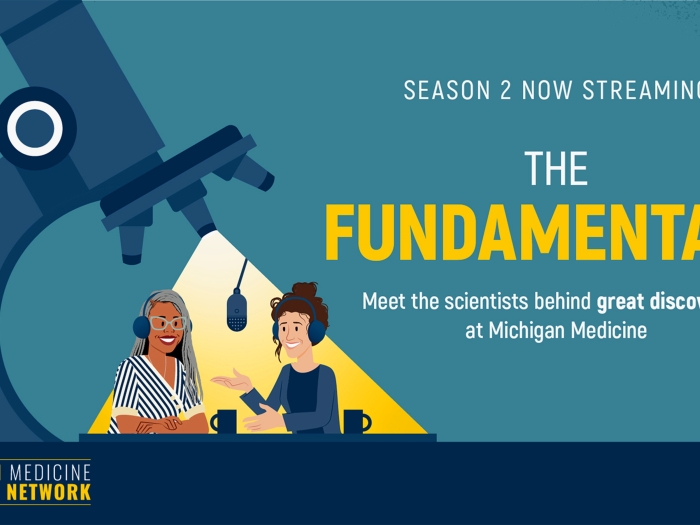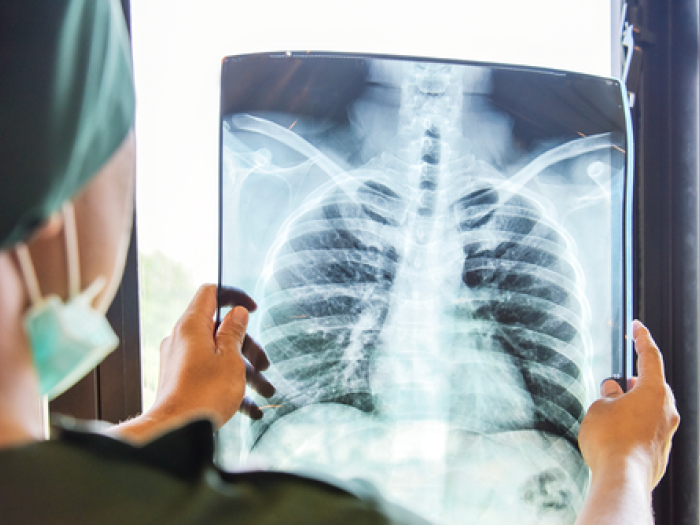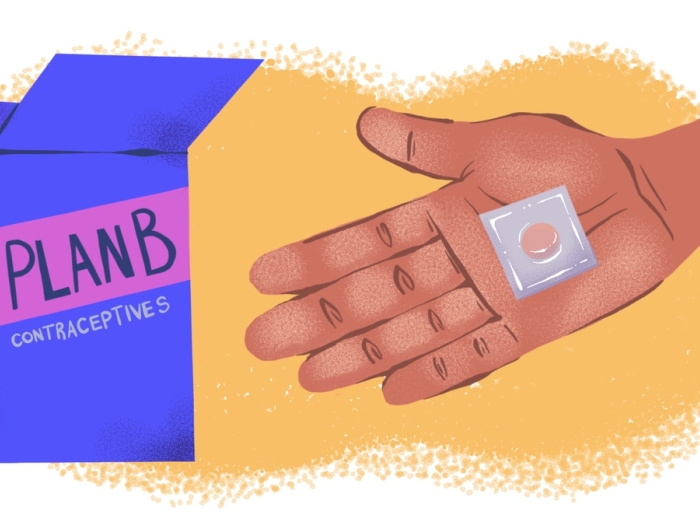Showing 1-15 of 43 results

Health Lab
A large grant for Michigan Medicine will launch important research to improve the screening and treatment for a gynecologic disorder that disproportionately impacts Black and Hispanic populations

Health Lab
On YouTube, the content recommended to kids isn’t always age appropriate, a Michigan Medicine study finds.

Health Lab
Youth with heart disease enrolled in unique program that teaches resilience and builds connections with their peers

Health Lab
A study published by researchers at the University of Michigan reveals that implementing this screening tool can help identify and support youth with firearm violence history.

Health Lab
A melanoma survivor shares facts and tips about preventing all types of skin cancer.

Medical School News
In the second season of The Fundamentals podcast, co-hosts Kelly Malcom and Jordan Goebig talk to several leading experts from the Medical School about their fields and the fundamental questions they are trying to answer — and discover why U-M is such an amazing place for research. Six new episodes of the popular podcast were released on May 6

The Fundamentals
On today’s The Fundamentals is Dr. Brummett, Professor at the University of Michigan where he serves as the Senior Associate Chair for Research in the Department of Anesthesiology. He has more than 280 publications, including articles in top journals such as JAMA, JAMA Surgery, Anesthesiology, and Annals of Surgery. He is the Co-Director of the Opioid Prescribing Engagement Network or OPEN at the University of Michigan, which aims to apply a preventative approach to the opioid epidemic in the US through appropriate prescribing after surgery, dentistry and emergency medicine. Moreover, he is the Co-Director of the cross-campus Opioid Research Institute, which was launched in the spring of 2023. He leads multiple NIH grants studying these concepts and receives funding from the Michigan Department of Health and Human Services, SAMHSA, CDC, and multiple foundations.
You can learn more about Dr. Brummett here, and you can follow Dr. Brummett @drchadb and the department of anesthesiology @UMichAnesthesia on X.

The Fundamentals
Dr. Jody Platt. She is an Associate Professor of Learning Health Sciences at the University of Michigan Medical School. Trained in medical sociology and health policy, her research focuses on issues at the intersection of informatics and ethics. She is interested in understanding what makes data-driven health trusted, and the pathways for earning, achieving, and sustaining trust across stakeholders. Dr. Platt is the Academy Health and ABIM Foundation Senior Scholar in Residence advising on issues of measuring and building trust.

Health Lab Podcast
A survey focused on how much people in their teens and early 20s know about periods and their experience and attitudes around “period poverty”.

Medical School News
Six members of the University of Michigan community were inducted into the National Academies of Practice (NAP) as Distinguished Fellows in a ceremony held on March 16, 2024 in Jacksonville, Florida as part of the Annual NAP Meeting and Forum. The group includes faculty and clinicians from the University of Michigan, University of Michigan-Flint and Michigan Medicine.

Health Lab Podcast
U.S. emergency departments see 96% fewer visits, $7.6 million less in medical costs after FDA approval of over the counter emergency contraception.

News Release
Through a $4.17M NIH grant, a team of biomedical engineers, medical clinicians and data scientists from the Max Harry Weil Institute for Critical Care Research and Innovation is collaboratively researching ways to develop a portable, non-invasive breathalyzer-type device and corresponding algorithm to quickly and accurately diagnose acute respiratory distress syndrome (ARDS).

Health Lab
After federal approval for over the counter emergency contraception in 2006, emergency departments across the U.S. saw dramatic decreases in related visits.

Health Lab
Surgery patients who drink at a risky level have higher risks of complications; surgical teams could use artificial intelligence to search their records for signs that they may need to cut back.

Health Lab
Post-traumatic stress worse among Mexican American caregivers compared to white caregivers.